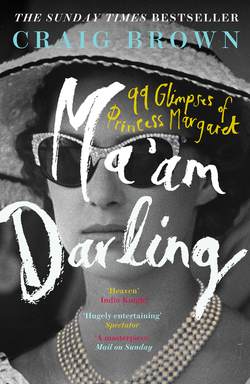Читать книгу Ma’am Darling: 99 Glimpses of Princess Margaret - Craig Brown, Craig Brown - Страница 32
26
ОглавлениеHow does a fairy-tale romance turn into a monstrous problem? ‘I had offended the Establishment by falling in love with the Queen’s sister,’ was the Group Captain’s simple explanation. But was it sufficient?
In Time and Chance, Townsend declares that ‘It was practically certain that the British and Dominions parliaments would agree – but on condition that Princess Margaret was stripped of her royal rights and prerogatives, which included accession to the throne, her royal functions and a £15,000 government stipend due on marriage – conditions which, frankly, would have ruined her. There would be nothing left – except me, and I hardly possessed the weight to compensate for the loss of her privy purse and prestige. It was too much to ask of her, too much for her to give. We should be left with nothing but our devotion to face the world.’
When Time and Chance was published in 1978, it enjoyed a largely respectful reception, most critics commending the tact with which its author covered his relationship with Princess Margaret. ‘Balanced and charitable’, read a typical review.
But one critic broke ranks. Alastair Forbes was a cousin of President Roosevelt, the uncle of the future US secretary of state John Kerry, and a friend of the well-connected, among them Cyril Connolly, Randolph Churchill, the Grand Duke Vladimir of Russia, the Duke and Duchess of Kent, and Prince and Princess Paul of Yugoslavia. He was, however, seen as trouble by some of the more prominent royal households: Princess Margaret used to refer to him as ‘that awful Ali Forbes’, while Queen Elizabeth II was once heard to yell, ‘Will you please put me DOWN!’ as he lifted her up during a Highland reel.
Like many of the most energetic stately-home guests, he traded in gossip, usually about those with whom he had just been staying. His fruity tales were peppered with nicknames, often based around puns. For instance, he retitled Temple de la Gloire, Oswald and Diana Mosley’s home outside Paris, ‘The Concentration of Camp’; Essex House, the home of James and Alvilde Lees-Milne, became ‘Bisex House’.
Forbes was long rumoured to be some sort of non-specific spy, either for the CIA or MI6, or possibly both at the same time. His whole life was to some extent swathed in mystery, much of it of his own making. Sustained by a private income, he dabbled in politics and journalism and, in his sixties, took to reviewing books for the Times Literary Supplement and the Spectator. His prose had a Firbankian quality, its long, elegantly rambling sentences choc-a-bloc with foreign phrases, ribald asides, Byzantine names, incautious allegations and forensic examinations of abstruse questions such as ‘Did the Duke of Windsor have pubic hair?’
He had a morbid side to his character. At funerals, some detected an air of triumph emanating from him as friends, enemies and chance acquaintances were lowered into the soil. He was also something of an early bird at deathbeds, pen at the ready to transcribe any last words. It was death that brought his competitive streak to the surface: he had, for instance, made it his mission to be the last man to see Diana Cooper alive.*
Forbes was an egalitarian, in that he was as rude to the highest-born as to the lowest. Perhaps more so: he once dismissed Jesus Christ’s Sermon on the Mount as being on a par with the mottoes contained in Christmas crackers. His review of Peter Townsend’s autobiography, published under the heading ‘The Princess and the Peabrain’, followed this cock-snooking impulse. Throughout the piece he portrayed Townsend as an upstart – ‘What might be pardonable as the dream of an assistant housemaid was entirely unsuitable for an assistant Master of the Household’ – and his memoir as yet another attempt to cover the tracks of his social climbing. Rejecting the Townsend version of himself as a victim of love and circumstance, Forbes poured scorn over his every excuse and explanation:
‘How to consummate this mutual pleasure was the problem,’ writes the author in his best Monsieur Jordain style. You don’t say! His imagination, he adds, never at a loss for a cliché, ‘boggled at the prospect of my becoming a member of the Royal Family’. Boggled perhaps, but no more than it had been Mittyishly boggling away on the back burner for years. ‘All we could hope was that with time and patience, some solution might evolve.’ Meanwhile, he neither felt the slightest conscientious compulsion to resign from a position whose trust he had so weakly betrayed, his perverted taste for risk overcoming his sense of duty and gratitude to his Royal employers of eight years, nor did he feel able to say, after the fashion of those pretty inscribed Battersea enamel boxes: ‘I love too well to kiss and tell.’
